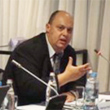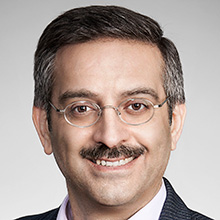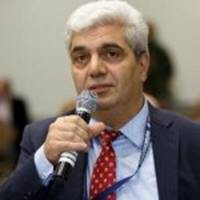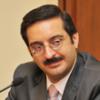Will the Syrian Kurds Strike a Deal with Moscow?[Over]
 By Fuad Shahbazov, Baku-based independent regional security and defence analyst By Fuad Shahbazov, Baku-based independent regional security and defence analyst
President Donald Trump’s announcement at the end of 2018 that he would withdraw U.S. troops from Syria came as a surprise to all parties involved, sparking particular concerns among America’s Syrian Kurdish allies. The move followed President Trump’s declaration of victory over ISIS after a four-year military campaign fighting alongside Syrian Kurdish forces. This sudden and unexpected decision has been widely criticized not only by allies but also inside the White House, with many analysts arguing that the U.S. withdrawal will expose the Syrian Kurds to an attack by Turkey READ MORE
- Wednesday, 6 February 2019, 07:26
Ceasefire Violations Down as Armenia and Azerbaijan Implement South Caucasus Study Group Recommendation[Over] By EGF Editorial Staff
Since the end of October 2018, a new operative communication line (crisis hotline) has been established between Armenia and Azerbaijan, two countries that have been at war over the status of Nagorno-Karabakh (NK), a region recognized as Azerbaijani by the International Community, but inhabited by a majority Armenian population.
According to official sources from both sides, the level of military tension on the Line of Contact (LoC) between the conflicting parties has significantly decreased (from about 90 reports of ceasefire breaches/day, to about 20 reports/day). The opening of this new communication channel had been agreed several weeks before by the president of Azerbaijan, Ilham Aliyev, and the Prime-Minister of Armenia, Nikol Pashinyan, during an informal meeting held in the margins of the CIS summit in Dushanbe (Tajikistan) on 27-28 September 2018. READ MORE
- Tuesday, 11 December 2018, 06:39
Is America Changing the European Power Play?[Over]  By George Vlad Niculescu, Head of Research, the European Geopolitical Forum
By George Vlad Niculescu, Head of Research, the European Geopolitical Forum
When at the NATO summit in Brussels, on 25 May 2017, president Donald Trump didn’t say that one sentence committing America to continue standing by article 5 of the NATO Charter, he raised eyebrows across Europe. At that time, everyone remembered that candidate Donald Trump raised serious suspicions that his presidency might lead to the end of the West, as we knew it. Nevertheless, everyone who has ever believed in the strength of the Trans-Atlantic link and in the soft power of the Euro-Atlantic values secretly hoped that the end of Pax Americana in Europe wasn’t that close. READ MORE
- Tuesday, 3 July 2018, 10:33
Armenia’s “Velvet Revolution” and the Karabakh Conflict Resolution[Over]  By George Vlad Niculescu, Head of Research, the European Geopolitical Forum
By George Vlad Niculescu, Head of Research, the European Geopolitical Forum
On 17 April 2018, Armenia’s National Assembly overwhelmingly voted to install Serzh Sargsyan -former president of the country- as prime minister. They unequivocally ignored the “voice of the street” calling for a change of face at the helm of this rather small, but ambitious post-Soviet state. This vote was supposed to conclude a power capture scheme started back in 2015.[…] Under pressure from independent civil society, then president Sargsyan had promised not to turn up as candidate for the prime-ministerial post. READ MORE
- Wednesday, 9 May 2018, 20:20
Endless Endgame: Whither Russia-West Confrontation?[Over]  By Elkhan Nuriyev, BREC Global Energy Associate, EGF Affiliated Expert By Elkhan Nuriyev, BREC Global Energy Associate, EGF Affiliated Expert
The world’s future is currently endangered by numerous fundamental threats, yet Western democracies fear only one – Vladimir Putin. On all geopolitical fronts of the emerging multipolar world the Russian President has smartly backlashed against all collective challenges mounted by the West. Small wonder the West’s incessant fear of Russia’s military power has made Putin the world’s most powerful man. What is currently happening in West-Russia relations is not a new Cold War; it is not even a renewed East-West divide. READ MORE
- Tuesday, 17 April 2018, 23:16
The Turkmenistan-Pakistan strategic partnership gathers momentum: as the great 'gas game' in Eurasia comes closer to a final realization [Over]  By Mehmood-Ul-Hassan Khan, EGF Associated Expert on South Asian geopolitics, By Mehmood-Ul-Hassan Khan, EGF Associated Expert on South Asian geopolitics,
The view from Lahore, Pakistan
Turkmenistan and Pakistan traditionally enjoy close, cordial relations marked by trust and understanding. Bilateral collaboration is growing steadily in a number of sectors. Indeed, on January 15-16, 2018 one of Turkmenistan's most prominent political figures, Rashid Meredov, conducted an official visit to Pakistan. READ MORE
- Monday, 12 February 2018, 18:42
Armenia’s U-turn back to ‘multi-vector foreign policy’[Over]  By Stepan Grigoryan, Head, Analytical Centre for Globalisation and Regional Cooperation, Armenia
By Stepan Grigoryan, Head, Analytical Centre for Globalisation and Regional Cooperation, Armenia
The statement from the President of Armenia in September 2013 sounded like a bolt from the blue. He would not sign the Association Agreement with the European Union at the planned November Eastern Partnership Summit in Vilnius, he said. Instead, Armenia would be joining the Russian led Eurasian Economic Union (EAEU). This signified Armenia's departure from a multi-vector foreign policy. READ MORE
- Wednesday, 17 January 2018, 09:54
The Black Sea-Caspian Region in Post-Conflict Energy Security Cooperation Scenarios[Over]  By Elkhan Nuriyev, BREC Global Energy Associate, EGF Affiliated Expert By Elkhan Nuriyev, BREC Global Energy Associate, EGF Affiliated Expert
This opinion piece applies post-conflict scenario planning to the future of the regional energy security cooperation in the Black Sea-Caspian basin and describes collaborative steps that could be taken by all relevant players to think more deeply about promoting the integration of energy markets in this part of the world.
Notwithstanding the most acute unpredictability of the new societies in Eastern Europe, the South Caucasus and Central Asia in the 1990s, the young states simultaneously faced the need for intense capital investments in their energy sectors that could drive economic growth. Since then, both the Black Sea and the Caspian basin alike have become crossroads for increased commerce and economic development as the old Silk Road is revived. READ MORE
- Monday, 2 October 2017, 21:25
1
2
3
4
5
6
7
8
9
10
11
...
13
|
|